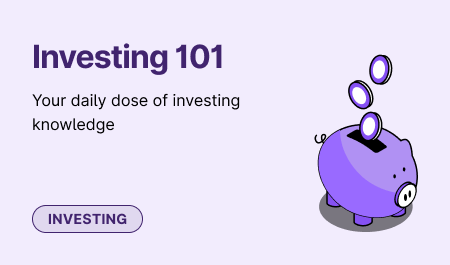If you’re a budding investor eager to make money from the market, here are a few techniques you can apply to achieve your goal.
How To Buy The Market And Profit From It?
- Buy and Hold
It might be, understandably, very tempting to sell out on days the prices are rising, but buying and holding turns out to be a better strategy.
Here’s what to do. You buy securities, hold on to them for a long period and have no intention of selling them in the short term. And what do you need for this? The skill of patience. An ability to ignore all the ups and downs in the market. Invest and forget about it for a long, long time. But do it after you’ve checked the company’s fundamentals and believe that it will last the race of time.
- The Correct Type of Account
There are many investment accounts out there but you need to choose the correct one.
If you’re keen on the above discussed long-term strategy, why not use it further to your advantage and use a retirement account?
It is called the National Pension Scheme (NPS) and is entirely non-taxable. The investments, returns, dividends - everything that this account holds is non-taxable. But securities in NPS can only be liquidated after the age of 60 or in specific unfortunate circumstances like a medical emergency.
On the other hand, regular taxable accounts do allow you to withdraw money whenever you want. And there, too, you can use tax-saving strategies like tax-loss harvesting to increase your profits.
- Dividends as Re-investments
Want to take that long-term strategy even further? Reinvest the dividends you earn.
In the beginning, or the short term, dividends might not seem like a big deal. But the history of Nifty 50’s returns has shown that when dividends are reinvested, the returns jump from 12% to 16%.
And why not? When you hold on to a stock for long, the dividends add up. It can then be used to buy even more securities. More securities mean more possibilities for amassing profits.
Most brokerage companies also offer you the option to reinvest your dividends automatically. It is known as the Dividend Reinvestment Program or DRIP and you won’t have to worry about remembering it.
- Tried out funds?
We all know that a diverse portfolio is always the better one.
No matter how good one or two companies seem to be doing or how sure one seems of their strong position in the market, it is equally true that no one can ever be 100% sure, especially of something that will only be revealed in the future.
That’s why it is always advised to maintain a portfolio consisting of a variety of assets from across sectors, industries, asset types etc. It allows you to safeguard your portfolio as well as to accumulate better returns.
You can try to build such a portfolio by buying individual stocks. But that will be expensive, time-consuming and require a certain degree of investing calibre.
Alternatively, you can opt to invest in a mutual fund. The fund managers are responsible for picking the best securities, plus you get a lot of securities for a considerably lower price. With index funds, you can also increase your chances of mimicking the market’s returns.
- Grab It On Sale
Become an opportunist when the markets are experiencing an overall sense of gloom. Like the big hit of 2008 or when Covid-19 started pulling down the markets.
Once in a while, everything seems to be going downhill in the markets. All companies, irrespective of their position on the indices, sectors, financials or management take a hit. Sell-off spree makes even more people inclined to follow suit.
This might be a very good time to buy. It is pretty much like stocks going on a sale.
And after all, markets resemble an electrocardiogram. The line will go up at some point unless it is dead !
- Put In Some Research
When you are just a beginner, you are likely to rely on advisors, financial articles or news pieces to aid your investment decisions. But as you get increasingly involved, it is worth the effort to learn to do background checks yourself.
Check the company fundamentals- annual reports, press releases and presentations. Do an analysis of the management, products or services as well as the industry. All this will allow you to be confident in your choices and make you feel independent as an investor.
This information is readily available on the corporate websites under the investor section.
- See The Value
See the value when others don’t. The stock market is often a place where the sheep follows the herd. But if you look around and dig deeper, you might be able to find stocks with tremendous potential. Others might not have spotted it yet which gives you the advantage of already possessing it when everyone else starts eying it.
But how do you know if a stock is undervalued? Primarily by looking at its fundamentals and prospects. Growth opportunities and what kind of plans and capabilities the company has. And will the company make the most of those opportunities?
Some other techniques include looking at a company’s dividend growth, comparing its P/E ratio with competitors plus metrics like the price to sales and price to cash flows ratios.
- Dive For The Dividends
Many companies are happy you invest in them and show gratitude by offering an annual dividend.
Whatever profits a company earns in a financial year, it decides to part with a small portion of it. This portion is distributed amongst the shareholders and is known as a dividend.
The value of the dividend is decided per share. For example, ₹10 per share or ₹20 per share. If the dividend per share and the face value of the share are equal, it is called 100% dividend.
Some companies offer a handsome dividend. And if you want to maximise your profits, you can opt for stocks that pay higher dividends.
- Be Amongst The First
When a private company goes public, it is called an Initial Public Offering or an IPO. The shares of the company are listed on the exchanges for the first time and you get the opportunity to become one of the early investors. Some big companies, too, could be a part of this list and it can be quite beneficial to invest in an IPO.
SEBI only allows IPOs after a thorough check, so, you can rest assured of the standards. If the gains rise on the listing day, you are at an advantage and can quickly and profitably liquidate the shares. Apart from getting an early access to shares, you also enjoy transparency because while launching an IPO, the company makes all its information easily available in the DRHP or Draft Red Herring Prospectus.
- Keep A Tab
The sharemarket is affected by many more factors than just the performance and fundamentals of a company. You should have the knowledge to put two and two together. You have to be able to analyse how external factors like current affairs or interest rates might affect the stock market.
If the RBI lowers interest rates, companies get cheaper loans which increases their profits and, in turn, their dividends as well as share prices also rise. Vice versa when the rates are increased.
Current affairs, too, like wars, festivals, natural calamities or elections, affect the markets. For example, during Diwali, the rise in the demand and supply of FMCG products leads to an increase in the demand for shares of FMCG companies.
To become a successful and profitable investor, you must have the ability to connect all the dots.
That’s a wrap. We hope to have helped you in your investment journey. If you want to learn more about such topics, go through our blogs or comment and mention what you’d like to learn next.



